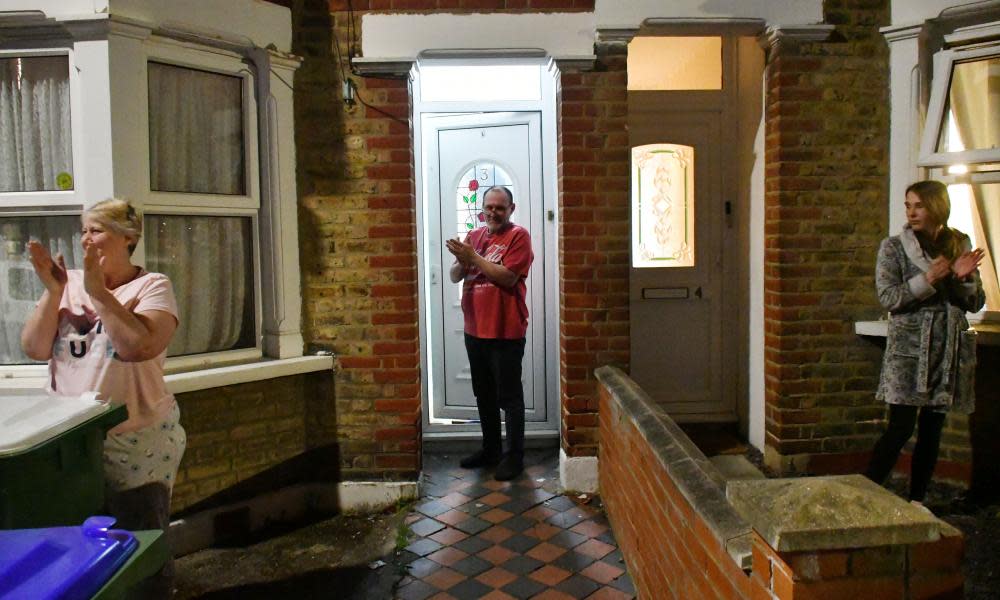The Observer view on the importance of national unity

Last week, the BBC replayed the opening ceremony of the 2012 Olympics. The stars of that spectacle, you will remember, were a battalion of NHS nurses from Great Ormond Street hospital, who wheeled in hundreds of beds – complete with children in stripy pyjamas – and constructed a make-believe hospital before the world’s eyes. No moment at that London Games, not the grit of Mo Farah, not the grace of Jessica Ennis, provoked a more emotional surge of collective pride than that one.
That “we can be heroes” spirit has been ignited in the country again, only this time in earnest. The hospitals that now – grimly – are being created before our eyes are those repurposed exhibition halls, the new Nightingale facility in east London and those planned in Birmingham and Manchester and Cardiff. The #clapforcarers moment at 8pm last Thursday saw the country emerging from behind its closed doors to applaud each and every act of compassion and bravery from those at the sharpest end of this pandemic, in a gesture of heart-swelling unity perhaps not felt since that heady sporting fortnight eight years ago.
The prime minister has sometimes cast his rhetoric about the disease as a call to arms, but the British people have never needed war as an excuse to volunteer. This has long been a nation of collection tin shakers and Red Nose activists, of helpers for heroes and GoFundMe marathon runners. The volunteers – an extraordinary 700,000-plus and counting – who have stepped forward to provide a network of support for those 1.5 million fellow citizens most at risk prove that this determination is alive and kicking; even more courageous, perhaps, are those 7,000 former and retired doctors and nurses willing to return to intensive care.
In recent years, it has often seemed that the splits opened by Brexit cast us into two implacable tribes. The past weeks show that there remain things about which we can nearly all agree: among them the selflessness of the NHS staff on whom we all depend, and the capacity for decency and kindness in communities up and down the land. Last week has proved, as Jo Cox so indelibly argued, that we still at heart “have more in common than that which divides us”.
In the coming weeks, in which, as now seems horribly likely, we watch those new overflow hospitals and morgues pressed into service, that principle may be tested as never before in most of our lifetimes. Like all crises in the age of social media, this one offers constant opportunity to pick sides; to rage at lockdown transgressors and troll mercenary millionaires and yell at politicians on TV. More important, perhaps, for those of us who can save lives just by sitting on our sofas, to focus on the extraordinary work done on our behalf by all key workers, from carehome staff to refuse collectors.
There is justified fear of what may be coming. We can hear that anxiety in the Skyped voices of our isolated parents and grandparents; we might sense it in ourselves. Even so, much has already been taken on board. Parents have taken up the challenges of home-schooling, teenagers have forgone social lives and summer plans, weddings have been shelved, house moves postponed. The monumental shift in national behaviour has so far been brought about not by sanctions and fines but by common sense and fellow feeling.
As this crisis unfolds, we don’t need to unplug our memory of the short-sighted negligence of provision made in the name of austerity. Now, more than ever, a government that was elected playing fast and loose with figures must be held to its promises. But the weeks and months ahead will be less a political drama than a struggle waged in millions of individual lives up and down the land. It will be more quickly over if we hold in mind that, at our best, we remain all in it together.

 Yahoo News
Yahoo News 
